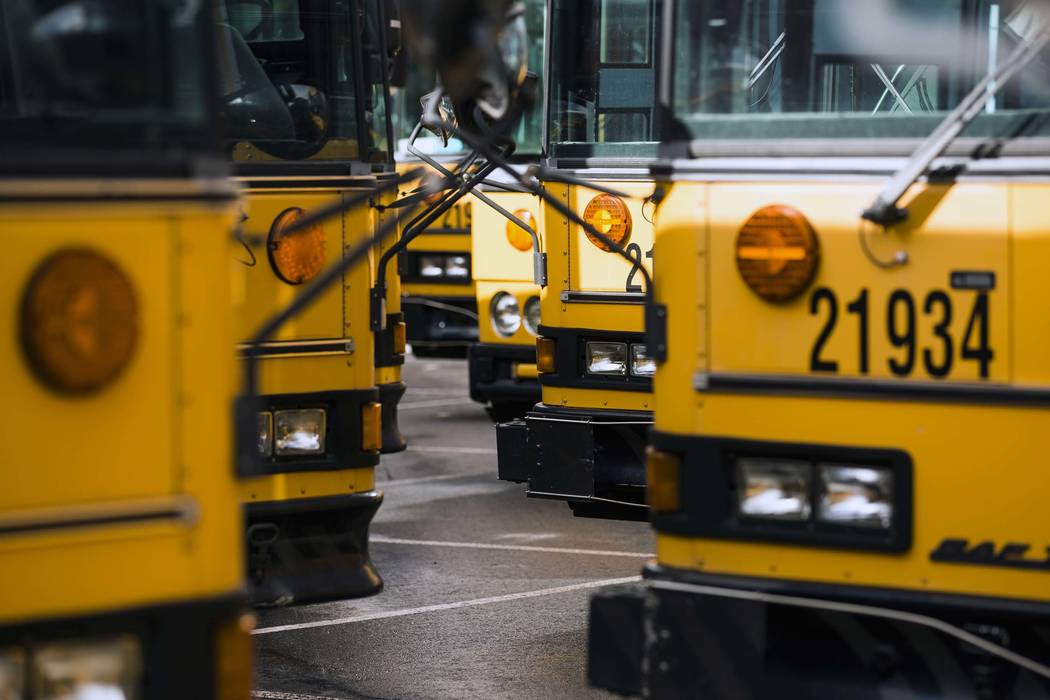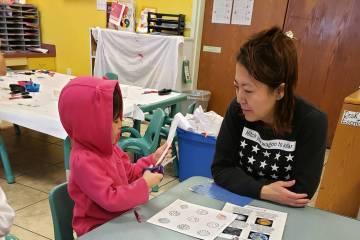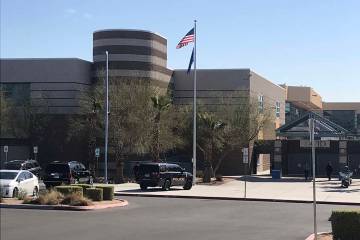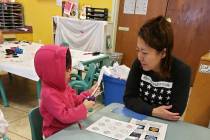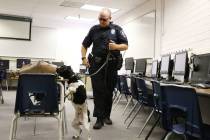Clark County schools closure would cut risk, but at what cost?
Since Nevada reported its first case of coronavirus last week, one big question has been at the forefront of the conversation: Will Clark County schools close to prevent the disease from spreading?
When I first started researching the answer many years ago (the beginning of this week), it seemed unthinkable — the only schools to have closed were small, private and nimble enough to make the choice and quickly execute it.
But by Friday, with closures of schools in Los Angeles and San Diego (affecting 750,000 students), in three counties in Washington (affecting 560,000 students) and Ohio (affecting 1.6 million students), suddenly the possibility of turning our own tanker of a school district on a dime didn’t seem so far-fetched.
It’s a choice districts hope they don’t have to make, according to Chris Miller, senior vice president at EAB, an education best practices firm, who said that school districts would prefer that a state agency force their hands, as happened in Ohio, Maryland and Michigan.
Behind closed doors, district leaders are weighing the major reason to close schools — slowing the spread of disease — against dozens of other concerns, with their considerations forming a kind of Maslow’s hierarchy of needs, Miller said.
First, there’s the need to keep kids fed: Over 60 percent of CCSD students are eligible for free or reduced-price lunch. As is the case at schools in New York City, a portion of that population would go hungry were it not for their school meals. Miller said districts are considering whether school buses could be repurposed as a meal delivery service or whether a drive-thru could be set up, as schools in Tacoma, Washington, have done.
Next there’s the issue of continuity of learning: Districts that opt for online classes rather than an outright closure need to have the the infrastructure set up to do so, particularly for students who do not have their own personal technology.
CCSD as a whole does not have that capability, Superintendent Jesus Jara has said.
Then there’s the question of education quality. Even school districts in Washington, where connectivity is more widespread and parents have more flexible working hours than elsewhere, schools are finding that actual learning is suffering, Miller said.
School districts are also conscious that closures would have a ripple effect on the rest of the city, with the parents of CCSD’s 330,000 students suddenly needing flexibility in their work schedules or supervision for their children or both. New guidance from the CDC says these impacts must be planned for and mitigated, adding that short-term school closures might not have much impact on the spread of disease.
Teachers are worried about their health. Parents are concerned about learning loss during long-term school closures, though they understand why they might be necessary.
“I am not a teacher, and honestly don’t understand all the math work,” parent Brandi Rollins said. “I try, but I can’t help her the way a teacher can when she has questions.”
Her seventh-grader, Alexandra, said despite anxieties over coronavirus, she would not like to have online classes, partly because of the lack of collaboration and one-on-one guidance.
“Plus the teachers don’t actually know if we are doing the work,” she said.
And other students say they’re torn: On one hand, if athletics, events and trips are canceled, why continue to pack students into crowded classrooms? On the other, schools are still their connection to their friends, and make-up days in the summer would be a particular burden on seniors.
“I would be banging on the doors, begging them to let me in,” said Elliandra Bemoll, a senior at Clark High School. “I just want to graduate.”
Contact Aleksandra Appleton at 702-383-0218 or aappleton@reviewjournal.com. Follow @aleksappleton on Twitter.



